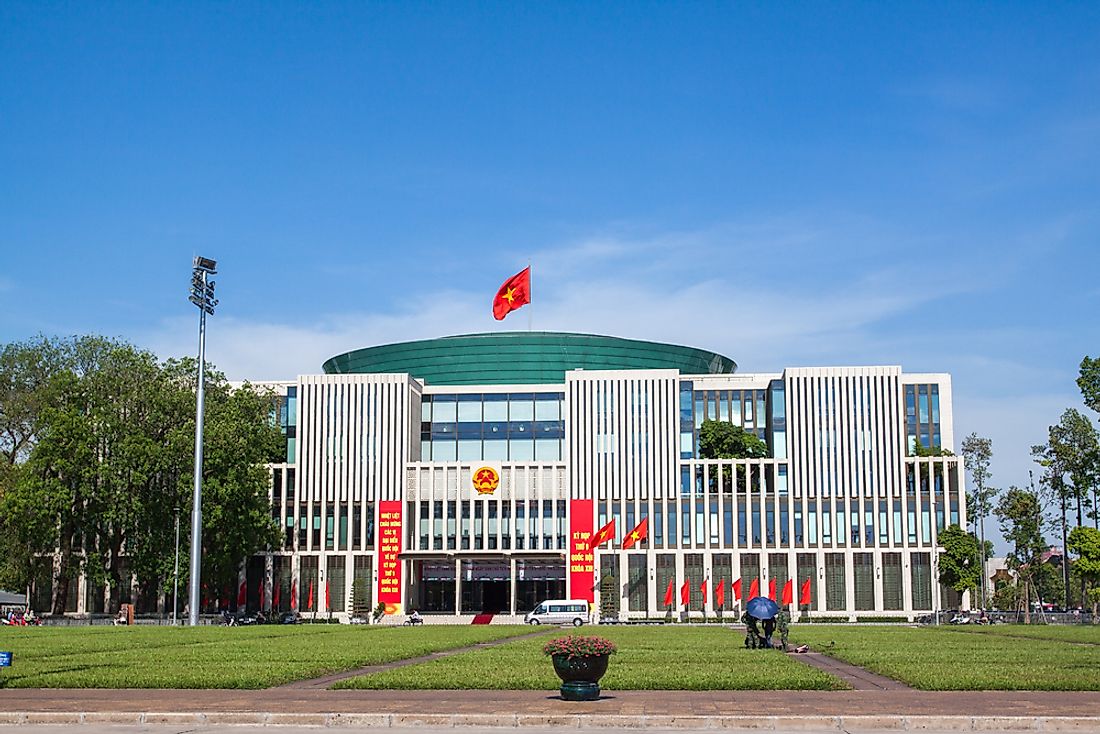What Type Of Government Does Vietnam Have?

Vietnam has a communist government. It is one of the five remaining communist countries in the world today. The president is the head of the republic, and the prime minister is the head of the government. It has three branches: the executive, which is administered by the government and the president, the legislative, which consists of the national assembly of Vietnam, and the judiciary which comprises of the courts.
Executive Branch Of The Government Of Vietnam
The Executive consists of the president, the prime minister, and the government. The national assembly elects the president for a five-year term, and he can serve for only two terms. He is the chairman of the Council for Defense and Security and the commander-in-chief of the armed forces. The president appoints the prime minister, the vice president and the heads of courts with consent from the national assembly over a vote of the majority. He can declare a state of emergency or war and is in charge of foreign affairs. The prime minister is the head of the government which is made up of the deputy prime minister, ministers, and other members.
Legislative Branch Of The Government Of Vietnam
Vietnam has a unicameral parliamentary system where the national assembly is the highest representative organ. It has both constitutional and statutory powers. It formulates policies and controls all state activities. The members are elected through elections and serve for a term of five years. It has seven committees which are responsible for drafting laws, examining bills, and preparing legal reports.
Judiciary
The highest organ of the judiciary is the Supreme People's Court which consists of the chief justice, deputy chief justice, jurors, and court secretaries and is the highest court of appeal. The national assembly elects the chief justice as the president nominates the deputy and other judges. The judiciary is independent of the executive, and they only have to obey the laws drafted in the constitution. The Supreme People's Prosecutor oversees the work of the ministries, government organs, local authorities, the security forces, and the citizens of Vietnam.
Elections In Vietnam
Elections in Vietnam take place every five years and all people aged 18 and above have the constitutional right to vote and elect members of their choice. People aged 21 and above have the right to vie for positions and be voted into the national assembly. Elections commissions oversee the election process; the election council at the central level, the electoral commission at the provincial level and the election commission at the constituency level.
Local Government Of Vietnam
The local government comprises of the 58 provinces and five municipalities which are centrally controlled by the national government. Provinces consist of districts, provincial cities, and towns. Cities comprise of towns, urban, and rural districts. Districts comprise of communes and townlets. The people's council heads the provinces. Citizens elect the people's council and charge them with the role of acting on behalf of the constitution.
Ideas And Ideologies
Vietnam is a socialist republic led by the Communist Party of Vietnam. The party and state base on the ideologies of Marxism and Leninism. It is organized on the principles of democratic centralism and is subject to Vietnamese law and constitution. The people supervise the actions of the party and it depends on their contribution to strengthen and unify it. Its highest organ is the national congress which decided its direction. The Congress elects the central committee to implement the decisions of the Congress.











